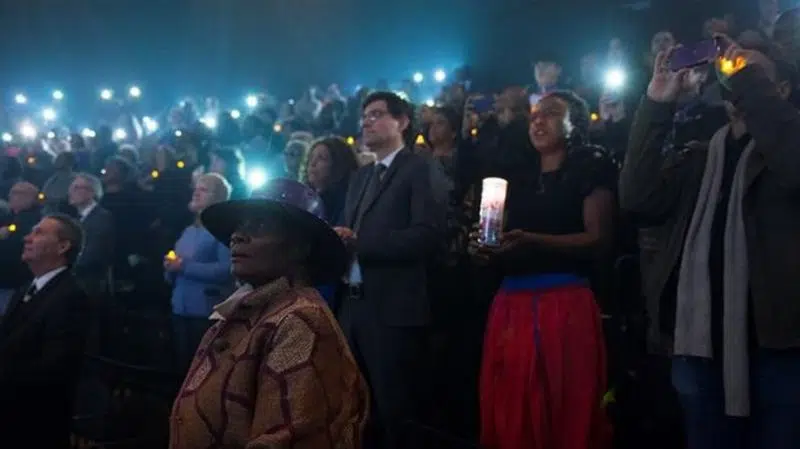
Haitian-Canadians commemorate 10 year anniversary of deadly earthquake
MONTREAL — Gael Stephenson Chancy remembers the time following the earthquake that struck Haiti ten years ago as the moment he was forced to grow up.
As his family rode in a transport towards the military plane that would carry his family to Canada, the then-12-year-old looked out the window and saw horrific sights.
“They had piled up the bodies of the dead next to the wounded as the rescue teams were trying to hide the wounded,” he said in an interview.
“I remember the adults in my family telling me to hide the eyes of my younger cousins, and I remember thinking, ‘Why wouldn’t I hide my own eyes?'”


